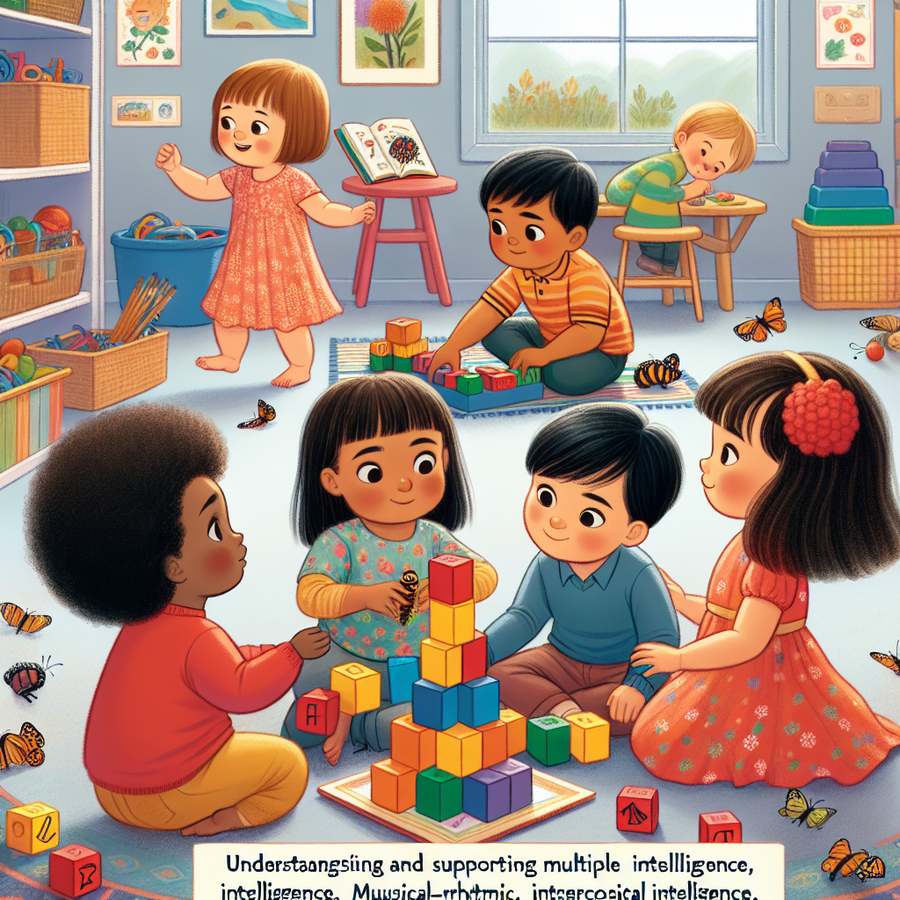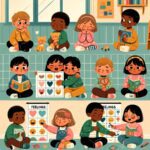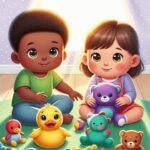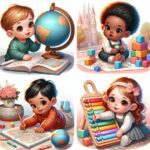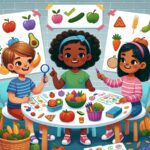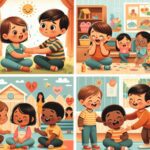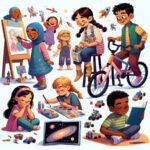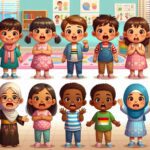Understanding and supporting multiple intelligences in toddlers is a crucial aspect of early childhood development that allows every child to shine in their unique way. Howard Gardner’s theory of multiple intelligences revolutionized the way we perceive intelligence, moving beyond the traditional IQ test to encompass a broader range of abilities and talents. In this guide, we’ll explore how parents and educators can identify and nurture these diverse intelligences in toddlers, paving the way for well-rounded development.
Identifying Multiple Intelligences in Toddlers
Understanding and supporting multiple intelligences in toddlers begins with recognizing the signs of each type of intelligence. Gardner initially proposed eight intelligences, including linguistic, logical-mathematical, spatial, musical, bodily-kinesthetic, interpersonal, intrapersonal, and naturalist. Each child may show a predominance in one or more of these areas. For instance, a toddler who enjoys solving puzzles may demonstrate strong logical-mathematical intelligence, while another who prefers playing with blocks might show spatial intelligence.
To effectively support these intelligences, it’s essential to provide a rich and varied environment that offers opportunities for exploration and learning. Activities like [reading stories](https://babywhysandhows.com/building-a-reading-routine-for-language-and-emotional-development) nurture linguistic intelligence, while [introducing music](https://babywhysandhows.com/integrating-music-into-your-babys-daily-routine-for-cognitive-benefits) can develop musical intelligence. Observing your child’s preferences and providing resources that align with their interests will foster a love for learning and discovery.
Understanding and Supporting Multiple Intelligences in Toddlers
After identifying the multiple intelligences your toddler may possess, the next step is to support and nurture these intelligences. This involves creating an environment that is conducive to learning and growth. For example, engaging in activities that promote [fine motor skills](https://babywhysandhows.com/activities-to-boost-fine-motor-skills-in-a-9-month-old) can enhance bodily-kinesthetic intelligence, while [exploring nature](https://babywhysandhows.com/incorporating-nature-into-your-childs-learning-and-development) together can spark an interest in the naturalist intelligence.
Moreover, it’s important to encourage your toddler to engage in a variety of activities. This not only helps in understanding and supporting multiple intelligences in toddlers but also ensures a well-rounded development. Encouraging your child to try new things, even if they don’t immediately excel at them, builds resilience and a growth mindset. Remember, the goal is to foster a love for learning rather than perfection in any single area.
Nurturing Emotional and Social Intelligences
While cognitive abilities are often the focus of early childhood development, understanding and supporting multiple intelligences in toddlers also mean nurturing emotional and social intelligences. These intelligences are crucial for building healthy relationships and navigating social environments. Activities that promote empathy, such as [role-playing](https://babywhysandhows.com/teaching-toddlers-about-emotions-and-appropriate-expressions) and sharing stories about feelings, can help develop interpersonal intelligence.
In addition, fostering intrapersonal intelligence involves helping toddlers understand their own emotions and motivations. This can be achieved through activities that encourage self-expression, such as drawing or playing with [sensory toys](https://babywhysandhows.com/the-importance-of-sensory-play-for-newborn-development). By supporting these areas of intelligence, parents and educators can help toddlers develop a strong sense of self-awareness and emotional regulation.
In conclusion, understanding and supporting multiple intelligences in toddlers is a dynamic and rewarding process that requires observation, creativity, and patience. By recognizing and nurturing each child’s unique talents and abilities, we can provide a foundation for lifelong learning and personal growth. Resources like the Howard Gardner’s Theory of Multiple Intelligences offer valuable insights into this approach. Embrace the journey of discovering and fostering the multiple intelligences in your toddler, and watch as they grow into well-rounded and capable individuals.

